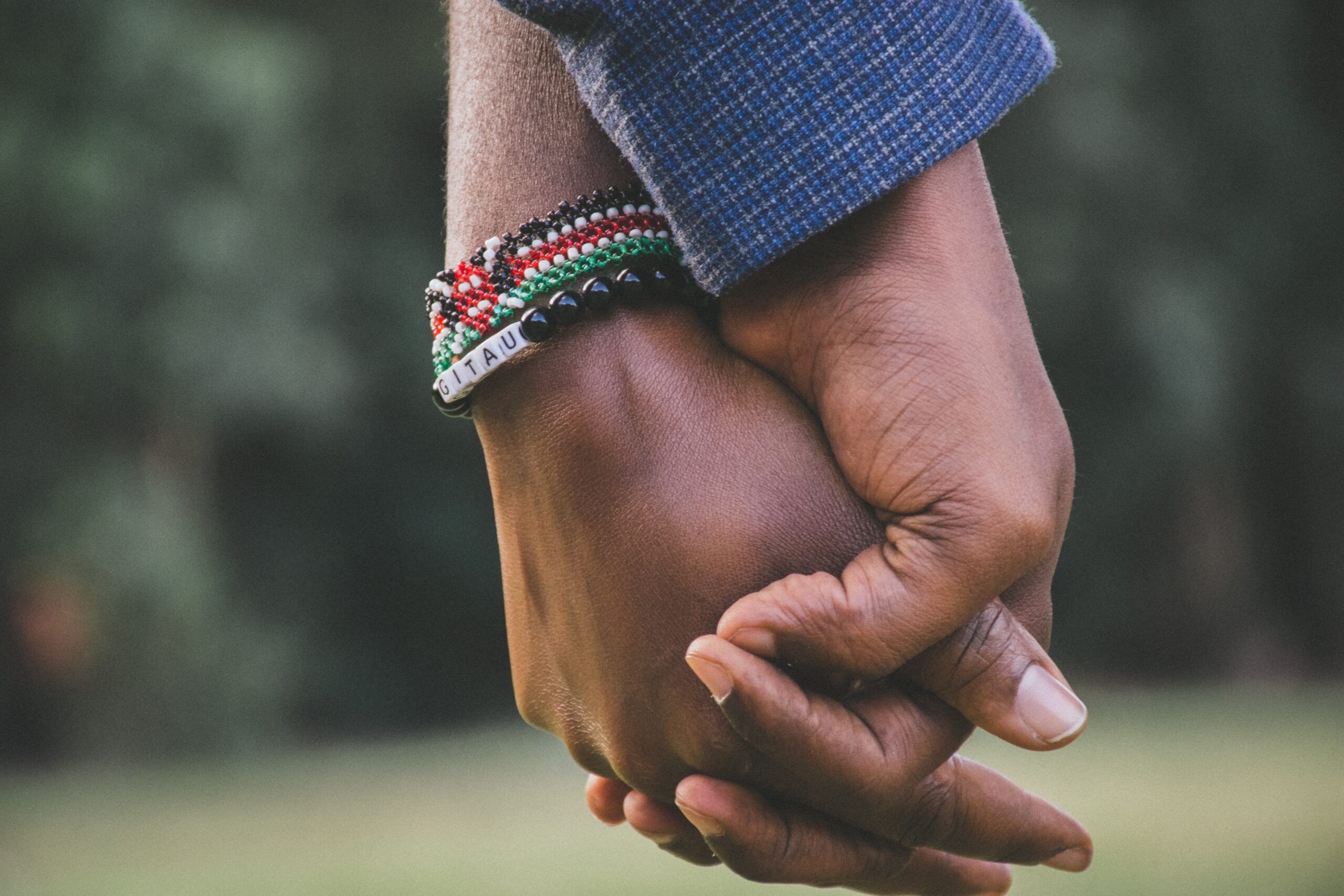


Anxiety Therapy Counseling

Depression Counseling

Grief Counseling
Breakups are difficult and painful, but there’s no way to avoid the risk of heartbreak, rejection, or failure when being vulnerable. So how do we get through a breakup and why is it so painful? Keep reading.
Why does a breakup hurt so much?
We are hardwired for connection. So when there’s an ending of any sort, there’s a severed attachment to that person. When that bond is broken, there can be a lost sense of self, fractured trust or security, and feelings of abandonment. There is also the loss of the hopes, plans, and a future you anticipated to have with your ex.
Neuroscience also explains why breakups hurt so much. The regions of our brain that are activated when we experience physical injury are the same parts of our brain that are stimulated when we experience emotional hurt like abandonment. Research shows that when people experience emotional pain, like rejection, the same areas of the brain get activated as when experiencing physical pain. These areas are the anterior insula and the anterior cingulate cortex. Another study compared the similarities between social rejection and physical pain by having people who recently experienced an unwanted breakup view a picture of their ex-partner. The research found using functional MRI showed that areas associated with components of physical pain (secondary somatosensory coretx; dorsal posterior insula) became active.
3 Actionable Steps to Get Over a Breakup
- Seek professional help. Therapists can be found on sites like Psychology Today, Open Path Collective, Therapy Den, or reaching out to your local University whose Counselor Education program offers pro bono counseling services.
- Be around supportive people. Empathetic and understanding people, who reflect your strengths, will help lift your spirits and remind you of your worth and why the relationship ended. Supportive people can also assist in your healing when they are capable of being a witness to your pain.
- Take yourself out on dates. When you get comfortable with being alone, you won’t be afraid of walking away when a relationship is no longer serving you.
What should you not do after a breakup?
Don’t seek out closure from the person who already didn’t know how to treat you better. You don’t truly need an ex-partners acknowledgment of your pain in order to keep moving forward. And most often, someone who’s caused you pain, isn’t always willing or capable of taking accountability for the hurt they’ve caused. So asking them to see or validate your hurt, can just end up re-wounding you.
When people avoid feeling the pain of a breakup they might gravitate towards maladaptive behaviors as distractions like alcohol, impulsive spending, unprotected sex, etc. This is harmful to your wellbeing. Sometimes people jump right into another relationship. If you don’t allow yourself time to reflect and heal before moving on, you’re more likely to let red flags go by, not be true to yourself, or to settle.
What are the 5 stages of grief after a breakup?
A breakup is a loss and deserves to be grieved just like any other loss. Elisabeth Kubler-Ross introduced the five stages of grief: Denial, Anger, Bargaining, Depression, and Acceptance. The stages are a reflection of one’s feelings, so you’re likely going to experience them multiple times throughout a day, month, or even just within the hour – our emotions can change frequently, just like the weather.
Denial, after a breakup, can look like someone experiencing disbelief and shock. They might be stalking their ex’s social media, ruminating, or obsessing over their ex in order to still avoid the pain. You might reread old texts or look at old photos. This can feel like you haven’t lost them yet if you’re keeping the idea of the two of you alive or trying to stay connected to them in this way.
Anger shows up when feelings of resentment or unfairness surface. You might feel angry about how your ex mistreated you, or angry towards yourself for staying longer than you wish you had. When denial wears off and you gain clarity around the situation, anger shows up because you’re recognizing the reality of any mistreatment or injustices. You might need an outlet for your fury to help process the situation, such as journaling, therapy, going to a rage room, or talking with friends who can empathize with your pain and help you gain clarity.
Bargaining happens when someone plays scenarios in their mind trying to get a different outcome. This thinking to oneself can sound like, “Well if only we hadn’t gone to that party we would’ve still been together.” “Maybe if we had one more conversation, then things could have been different.” “If they would just let me explain, I promise I’ll be a better partner this time.” It’s a negotiation of behaviors for a more desired outcome.
Depression sinks in when the person understands there really was a breakup. The individual might become reclusive, avoid social gatherings, or feel disconnected from themselves and others. They might cry more frequently, have increased blue moods, or question their future.
Acceptance is when the individual accepts that the relationship is over. Despite any pain and sadness still lingering, they are able to tolerate the pain and heartbreak. They can still function at work, school, and show up in their close relationships. They have come to terms with the reality of their situation and know that they will be okay.
How do I get over a breakup with someone I still love?
Two things can be true at once. We can love someone and still know that the connection is no longer good for us. You can care for someone and know that being with them no longer moves you towards the life you want to live. Sometimes people also miss what their ex represented to them more than the person themselves. Most people aren’t just all good or all bad. So it’s normal if you’re hung up on the good qualities of this person. It highlights the qualities that matter to you in a partner and your relationship values.
It’s important to remember that waiting until you no longer have feelings to move on is not fair to you. The relationship ended for a reason, so if that person or dynamic is no longer right for you, regardless of what the future holds, you have to continue moving forward on your path. Knowing that your needs aren’t being met, regardless of why the other person is unwilling or unable to meet your needs, and that you deserve more, is enough of a reason to move forward. Sometimes closure comes from knowing your own self-worth.
How long does it take to get over a breakup?
In order to get over a breakup you have to let yourself grieve. And there’s no timeline for grieving. See if you can let go of any expectations you might have surrounding how you think you should be grieving, or if you think you should just be over it by now. Instead, allow yourself to be with however and whenever that sadness and grief shows up for you.
How do I stop overthinking after a breakup?
Overthinking tends to happen because you’re avoiding the grief and pain of the loss. Our brains and bodies, naturally, don’t like endings. So someone might be holding on as a way to try to soothe themselves by avoiding the pain. But this avoidance is really a denial of the loss. In order for the overthinking or obsessing and rumination to end, you have to let in the pain. You have to let yourself grieve. You might not want to accept the pain that it’s over, but acceptance doesn’t also mean there isn’t any pain and sadness. You have to feel in order to process the situation, otherwise you’re numbing.
Don’t ever forget that your vulnerability is a strength that should be commended. It might take a few thoughtful tries until you find your person, but don’t let heartbreak discourage you from continuing to put yourself out there. In order to feel no pain we’d have to take away all your love. And your love is a reminder that you’re alive. All of the love that you’re capable of giving and receiving is a possibility for the healthy, loving relationship you’re on the path to finding.
Here are some additional resources to assist you in your breakup.
- The Stages of Grief After a Breakup (and How To Survive Each One)
- Brené Brown’s Advice for First Time Experiences
- How To Get Over a Breakup, According to Experts
- Turn Your Breakup Into a New Beginning
Looking for a therapist to help you get over a breakup? Take action to begin your healing journey and schedule therapy today.

Virtual Counselor in Florida
Virtual counseling services in the State of Florida have made it easier for individuals to access help remotely. Ashley Gersh LMHC makes it possible to receive mental health therapy and counseling services virtually through her website ActionAshley.com.
The professional background of Ashley Gersh centers around helping people through their mental or emotional issues. She is a licensed mental health professional and the founder of ActionAshley.com. As a licensed therapist, Ashley Gersh offers individual counseling, couples and family therapy, and grief and trauma support services through her website. As a Licensed Mental Health Counselor (LMHC), she has over 10 years of experience in working with people struggling with depression, anxiety, relationship struggles, intimacy difficulties, grief and trauma.
ActionAshley.com offers several different services to best meet the needs of each individual client. These include individual therapy, teletherapy, couples and marriage counseling, family therapy, and grief and trauma support. Each service is delivered in a supportive and compassionate environment, and utilizes evidence-based approaches to solving mental health issues.
Individual Therapy
Through individual therapy, Ashley Gersh helps clients gain insight into the source of their feelings, identify triggers, and find solutions to their problems. During these sessions, Ashley works to uncover an individual’s inner strengths to empower them to live fully and authentically. She also helps individuals develop new coping skills that may improve their daily life.
Teletherapy
Through teletherapy or aka virtual counseling, clients can connect with Ashley Gersh from anywhere in the world. Teletherapy sessions provide an intimate and private atmosphere to express emotions and explore inner thoughts without having to leave the comfort of home. Ashley provides individual sessions to address specific mental health issues as well as couples and family therapy sessions.
Grief & Trauma Support
Through grief and trauma support, Ashley Gersh provides an environment in which individuals can express their emotions and begin to work through their pain. In this type of therapy, she helps individuals gain insight into their thoughts and feelings and encourages them to build resilience and coping skills.
Ashley Gersh is now providing these services virtually and is available throughout Florida’s major cities, including but not limited to:
- Miami
- Tampa
- Orlando
- Tallahassee
- Fort Lauderdale
- Boca Raton
- West Palm Beach
- Naples
- Fort Myers
- Gainesville
- Destin
- Clearwater
- Daytona
- Jacksonville
- Jupiter
- Sunny Isles
- Boynton Beach
- Delray Beach
- Pompano Beach
This makes it possible for individuals who may not be able to access in-person therapy to access mental health services from wherever they are. Her services are designed to provide quality care, regardless of physical location or financial circumstances.
ActionAshley.com provides a comprehensive range of mental health services that can be accessed virtually. Among them depression therapist stands out. Ashley Gersh’s services include individual therapy, couples and family therapy, teletherapy, and grief and trauma support. These services are available throughout every major city in Florida, making it easy for individuals to receive mental health support from the comfort of their own home. As a Licensed Mental Health Counselor, Ashley Gersh provides these services in an environment that is safe, supportive, and empowering.
Counseling services revolve our core hurdles people may experience everyday including but not limited to:
Individuals, couples, and families on issues such as anxiety, depression, grief, addiction, relationship issues, and trauma.
To book Ashley Gersh LMHC as your anxiety therapist or depression therapist simply call 407-536-7509, email ashley@actionashley.com, or book online here.

Relationship Counseling

Anxiety Therapy Counseling

Depression Counseling





